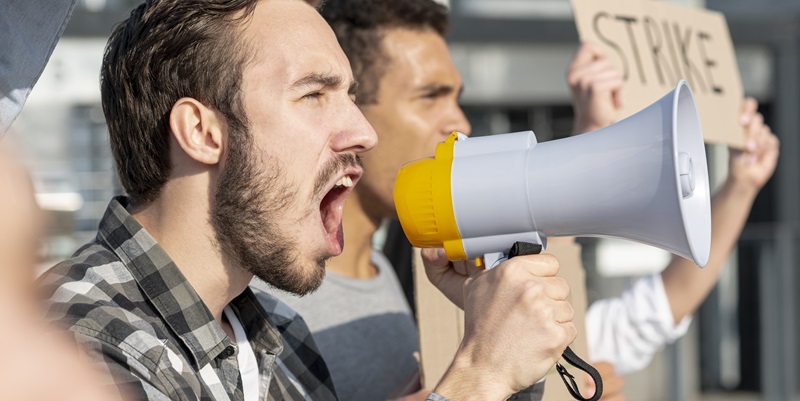In an escalating confrontation over labor rights, the United Auto Workers (UAW) has filed federal labor charges against former President Donald Trump and tech billionaire Elon Musk. The charges stem from remarks made by Trump during a conversation with Musk on the social media platform X, where Trump suggested that striking workers should be fired. These statements, according to the UAW, violate the National Labor Relations Act (NLRA) in the United States, which protects the rights of workers to engage in strikes. The comments have invited severe criticism from UAW president Shawn Fain, who emphasized the importance of protecting workers’ rights and holding powerful figures accountable for their statements and actions.
The allegations bring to the forefront a significant discussion about the rights of workers and the extent to which influential figures can impact labor laws and practices. The UAW’s charges underline their commitment to ensuring that workers can strike without fear of retaliation, a right that is enshrined in federal law. By taking this step, the union aims to send a clear message that any attempts to undermine these rights will be met with strong resistance.
Protecting Workers’ Rights to Strike
UAW’s Commitment to Labor Laws
The UAW’s move to file charges against Trump and Musk is not just about the specific comments made but also about the broader issue of protecting workers’ fundamental rights to strike. Striking is a legally protected activity, and any suggestion that workers could be fired for participating in strikes directly contradicts this protection. UAW president Shawn Fain has been vocal in his condemnation of Trump and Musk, highlighting that such remarks are not only illegal but also undermine the principles that labor unions stand for.
Fain’s statements reflect the union’s determination to defend workers’ rights and challenge any form of intimidation or threats from powerful figures. The charges filed are seen as a crucial step in holding those in influential positions accountable and ensuring that they do not feel above the law. This incident points to a larger pattern of tension between labor rights organizations and influential business or political leaders, illustrating the ongoing struggle to maintain and strengthen labor protections in the face of significant opposition.
Addressing Corporate Greed and Billionaire Influence
The UAW has also used this incident to highlight broader issues of corporate greed and the influence of billionaires on politics and labor laws. By linking the actions of Trump and Musk to these broader themes, the union is framing the issue as part of a larger fight against corporate exploitation and political manipulation. Fain has sharply criticized both Trump and Musk for ignoring labor laws and prioritizing their interests over the rights of workers.
This narrative is designed to rally support from workers and the general public, emphasizing the need to stand up against powerful figures who seek to undermine labor rights. The UAW’s stance is not just about defending their members but also about advocating for a fairer and more just system where workers’ rights are respected and upheld. The charges against Trump and Musk are therefore part of a broader strategy to challenge the status quo and push for stronger protections and accountability in the workplace.
Political Implications and Strategic Endorsements
UAW’s Political Advocacy and 2024 Election
The UAW’s actions against Trump and Musk come at a significant time, with the 2024 US presidential election on the horizon. The union has made it clear that their political advocacy will play a crucial role in their strategies moving forward. By endorsing Kamala Harris for the presidency, the UAW is aligning itself with a candidate they believe will support labor-friendly policies and oppose corporate exploitation.
This endorsement is seen as a direct response to Trump’s anti-labor stance, and it underscores the union’s intention to influence the political landscape in favor of workers’ rights. The UAW’s decision is also a statement of their broader goals and priorities, signaling their commitment to electing leaders who will advocate for the interests of the working class and hold employers accountable for legal violations. The union’s political endorsements are thus a key part of their strategy to promote labor-friendly policies and fight against corporate greed.
Contrast with Trump’s Anti-Labor Stance
The United Auto Workers (UAW) has filed federal labor charges against former President Donald Trump and tech magnate Elon Musk, marking a significant escalation in the ongoing debate over labor rights. The charges relate to comments made by Trump during a conversation with Musk on the social media platform X, where Trump suggested that striking workers should be terminated. According to the UAW, these remarks violate the National Labor Relations Act (NLRA), which safeguards the rights of workers to go on strike without fear of retribution. UAW president Shawn Fain condemned the comments, stressing the need to protect workers’ rights and hold influential figures accountable for their statements and actions.
This situation highlights a broader debate about labor rights and the influence of powerful personalities on labor laws and practices. By filing these charges, the UAW aims to reaffirm their dedication to preserving the federally protected right to strike and signal that any efforts to infringe upon these rights will face strong opposition. The union’s actions reflect a commitment to ensuring that workers can exercise their rights unfettered by threats or retaliation.

